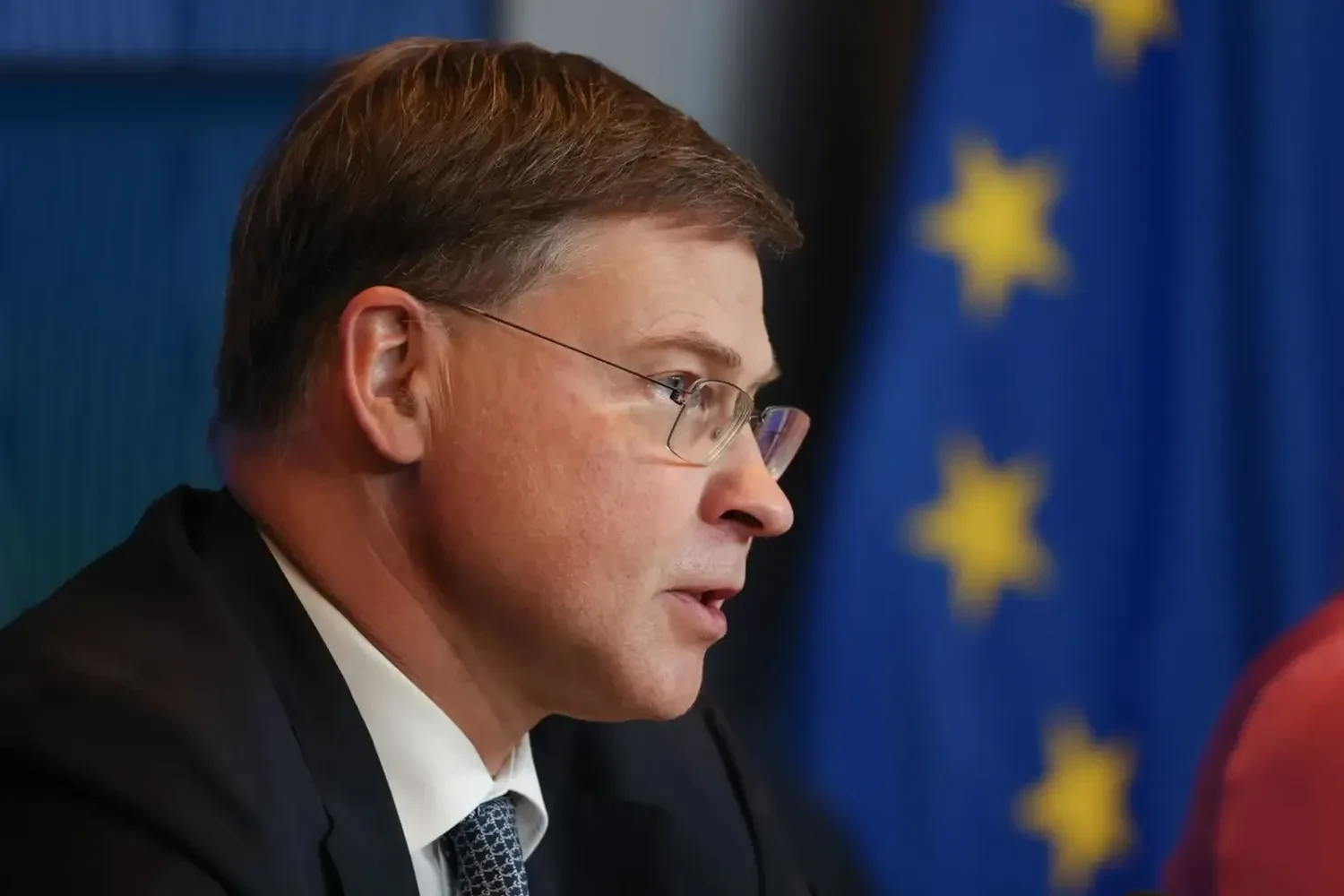The European Commission is urging Western allies to speed up payments on a $50 billion loan to Ukraine, as Belgium continues to stall EU efforts to support Ukraine with a larger financing scheme using Russian assets, Euractiv reports, writes UNN.
Details
In an interview with Euractiv, European Commissioner for Economy Valdis Dombrovskis said that countries should pay Ukraine funds from the G7 loan agreed last June to close a looming financial gap early next year in the war-torn country, the publication writes.
We are negotiating with other international donors to see if their support can be allocated for the beginning of the year
Dombrovskis said, adding that donors include the UK, Canada, Japan and the US.
This “may be enough… to cover Ukraine’s financing needs in the first quarter of next year,” although this is still “unknown,” the European Commissioner added.
The EU has already paid its share of the G7 loan, which amounts to 18.1 billion euros. But approximately 14 billion euros from the package have not yet been paid by other countries, namely the US, Canada, Japan and the UK. It is estimated that Ukraine “will face a budget deficit of $12 billion (10 billion euros) in the first quarter of next year,” the publication writes.
Dombrovskis’ remarks came as the EU tries to agree on a separate “reparations loan” of 185 billion euros ahead of a crucial summit of European leaders on December 18 and 19, where the European Commission hopes to convince Belgium to support the scheme. But these efforts suffered a major setback on Thursday when Prime Minister Bart De Wever sharply criticized the plan in a letter to European Commission President Ursula von der Leyen.
The “reparations loan” aims to use residual cash associated with Russian sovereign assets held by Euroclear, the Brussels-based clearing house, which were frozen by the EU after Russia’s full-scale invasion of Ukraine in 2022.
On the other hand, the G7 loan is already being provided and uses income generated from these assets.
Belgium refused to support the “reparations loan” unless its legal and financial risks were shared and other EU countries did not use Russian assets located in their own jurisdiction. Euroclear expressed similar reservations about the plan.
Belgian Prime Minister Bart De Wever has so far not backed down from his opposition to the scheme, which is expected to be officially proposed by the European Commission in the coming days.
Dombrovskis said that involving the Belgians was not a “prerequisite” for publishing a detailed legal proposal on how it would work in practice, but Belgian consent would be “ideal.”
Although there has been “technical progress” in negotiations between EU officials and Belgium, he admitted that political movement has been limited. “At this stage… it is also clear that Belgium has not yet taken steps to accept this concept,” he said.
The proposal will “obviously” take into account Belgium’s concerns, Dombrovskis said. “Belgium and other member states expect clarity,” he pointed out.
“Transitional” solution
The experienced European Commissioner also warned that a separate “transitional” EU solution to temporarily replenish Ukraine’s budget deficit “may be necessary” if negotiations with Belgium do not “progress quickly” by the end of the year.
Such schemes, outlined in a “options paper” circulated last week among EU capitals, involve the use of joint EU debt and bilateral grants from member states as alternative ways to temporarily replenish Kyiv’s budget deficit.
The document estimates that Ukraine will need 72 billion euros in military and social support in 2026 and an additional 64 billion euros in 2027.
Von der Leyen earlier this week suggested that these alternatives would not work if they were fully funded by EU taxpayers’ money.
Dombrovskis, a former Prime Minister of Latvia, stressed that the EU must “move forward because Ukraine’s financing needs are not only significant but also urgent.”
“We cannot endlessly discuss our options,” he said. “We need to make concrete decisions.”
